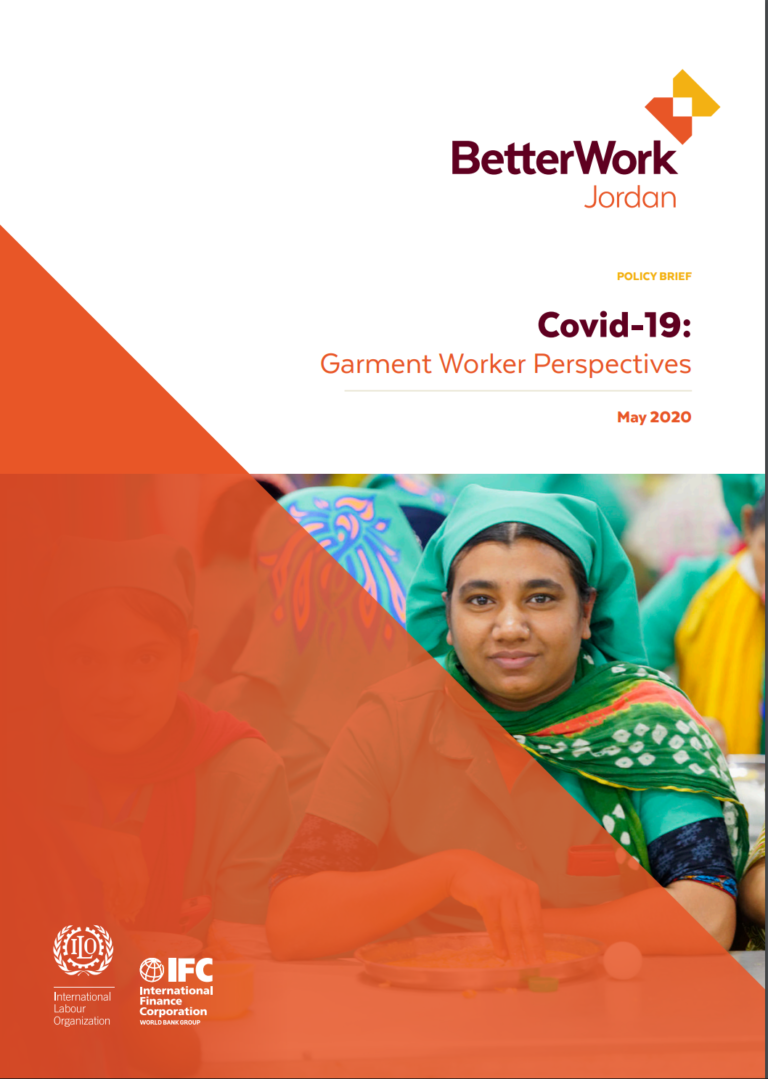The coronavirus pandemic and resulting government actions to stem the spread of the virus have severely changed the way people across the world work and live. For Jordan’s garment sector, the national curfew and shutdown of business activity forced factories to suspend production.
On March 17, the Government of Jordan (GoJ) ordered a full lockdown, effectively shutting the country and most economic activity down. This directly affected the 76,000 workers employed in the garment sector.
Migrant workers, who make up roughly three-quarters of the workforce, continued to live in factory-provided dorms and housing. In these situations, social distancing is nearly impossible as on average eight workers share a room and meals are eaten in the factory canteen. It was paramount to keep workers in these conditions from being infected. Since the initial lockdown, the country has gradually reopened, and the government has provided further guidance and rules, particularly through Defense Order 6 and Defense Order 9 which ensured the payment of wages and prevented companies from firing workers.
Additional information on these Defense Orders and other GoJ policies can be found on the Better Work Jordan (BWJ) website.

